- Family Photography Tips with Jenn Cooper
-

As a Mum, I believe that the best camera is the one you have on you (sometimes even a phone), and I regularly take happy snaps throughout the day. But, the images I see — framed on the walls — around me, aren’t those happy snaps. They’re the images I've taken the time to get my camera out for, and paid attention to important little things like clothing, lighting and the background.
I make sure we have great quality photos to remember major milestones. Kids change every single day and often it’s these everyday photos that capture their true spirit. By developing and practicing my own photography at home I'm able to capture these changing moments when I want to.
By using these tips, I hope you’ll transform your every day happy snaps into precious family memories, which can hang on your walls, and treasure for years to come.
Remove the clutter
Find an area in your home where you can shoot without any distractions in the background. The focus of your images should be the people in them.
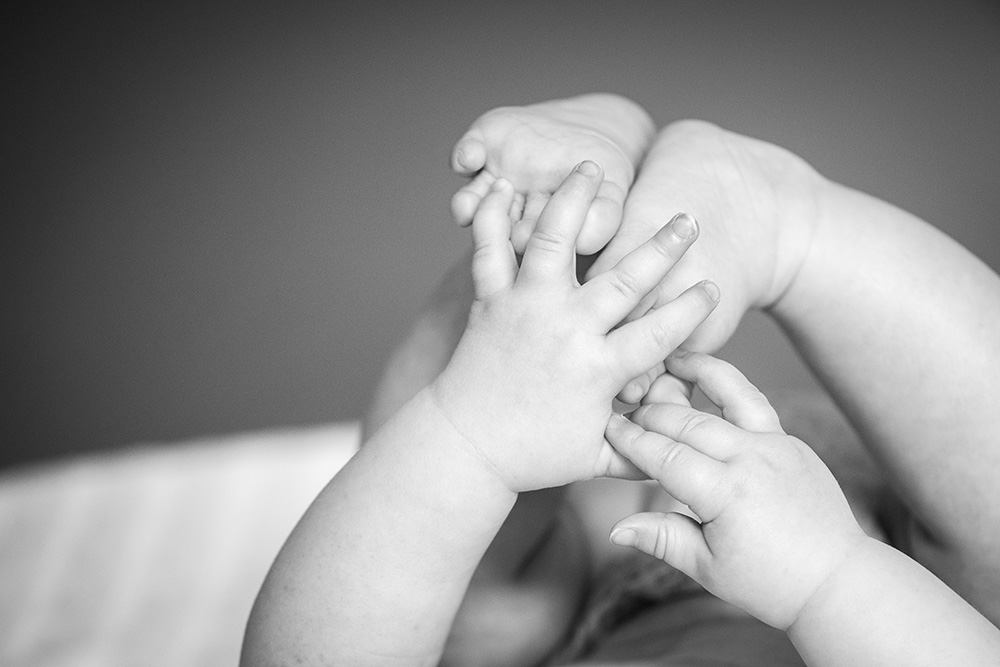
If you have trouble finding a neutral spot to position everyone, use large blankets to create your own backdrop. It’s an easy way to get that nice clean professional look.
It’s also really important to avoid positioning your subject too close to the background — this creates shadows.
Find that soft light
When I say soft light, I mean the lovely soft light you get from shooting in the shade — not direct sunlight — or the golden light that comes just around sunset or sunrise.
See where the natural light falls in your home, whether it's in the lounge room first thing in the morning, or the kitchen in the late afternoon. Wherever you find that lovely soft light, that's where you want to photograph.
Zoom, Zoom
If your camera has a zoom function, use it! Try standing away from your subject and zooming in, this is a great way to create soft blurry backgrounds and helps your subject stand out in the photo.
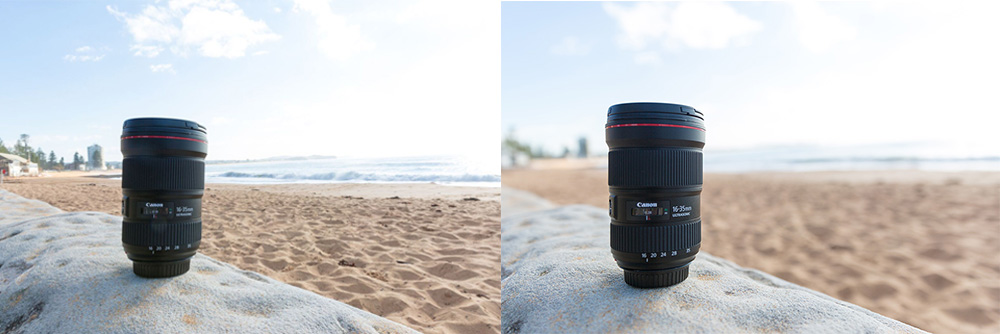
Zoomed out vs. zoomed in.
I use my zoom to get the composition just right, or I’ll physically take a step away to reposition myself. Crop out anything that doesn’t add to the image.
Hunt for the right angle
It’s important to find a good angle when taking a family portrait. A good rule to use is: if you can see up nostrils you’re too low. Try moving yourself or the subject for a better image.
For big groups try to limit the gaps between people’s faces — draw an imaginary triangle or circle between them for the best composition.
Don’t be afraid to experiment with the perspective! If everyone’s sitting on the ground, get down low and try shooting from their eye-level. Alternatively explore capturing a photo from a higher vantage point than your subjects.
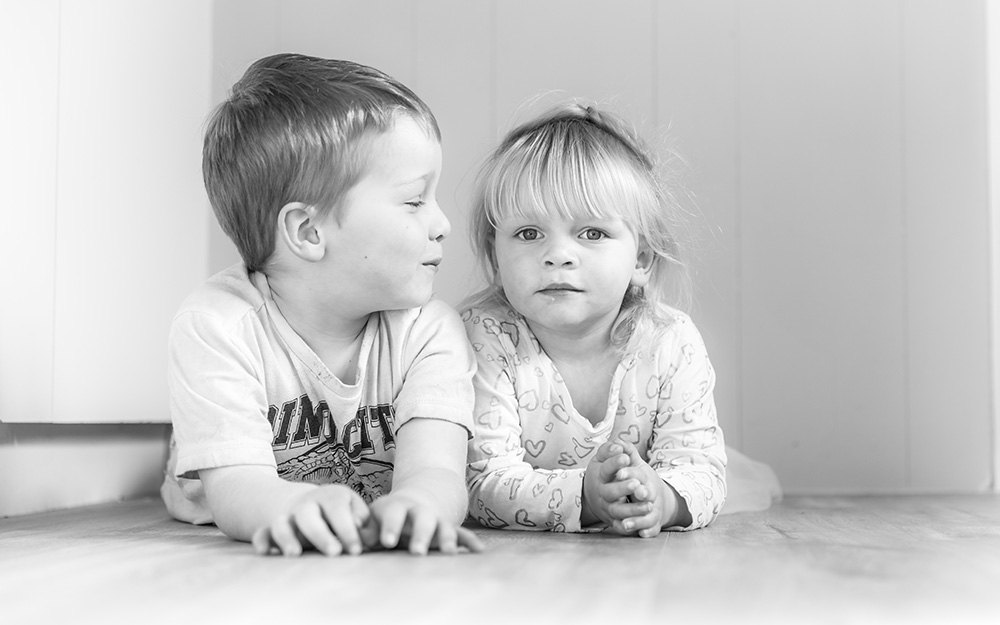
Dress to impress
Correctly choosing what to wear — and what not to wear — is really important. Avoid bold patterns or prints — these become a distraction in the printed image. Neutral tones work perfectly; I find plain clothes are much easier to coordinate and create professional looking images.
Kick off the shoes — especially for children's photos — and expose their beautiful little feet, it’s much nicer than photographing scuffed shoes.
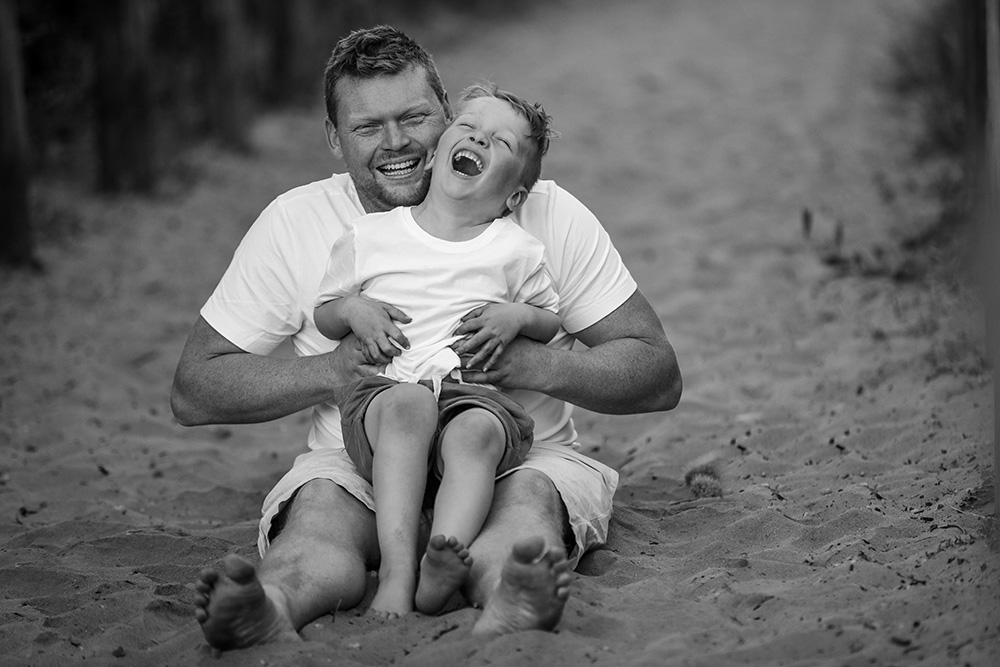
Get yourself in the picture
Try to get the whole family in the picture. To do this, set up your camera on a tripod and connect wirelessly to the Canon Camera Connect App. This app allows you to take a photo with your phone, which you can hide in your hand out of sight.
If your camera doesn’t have Wi-Fi you can use the 10 second self-timer and have fun running back into location before the timer runs out. Kids find this very entertaining!
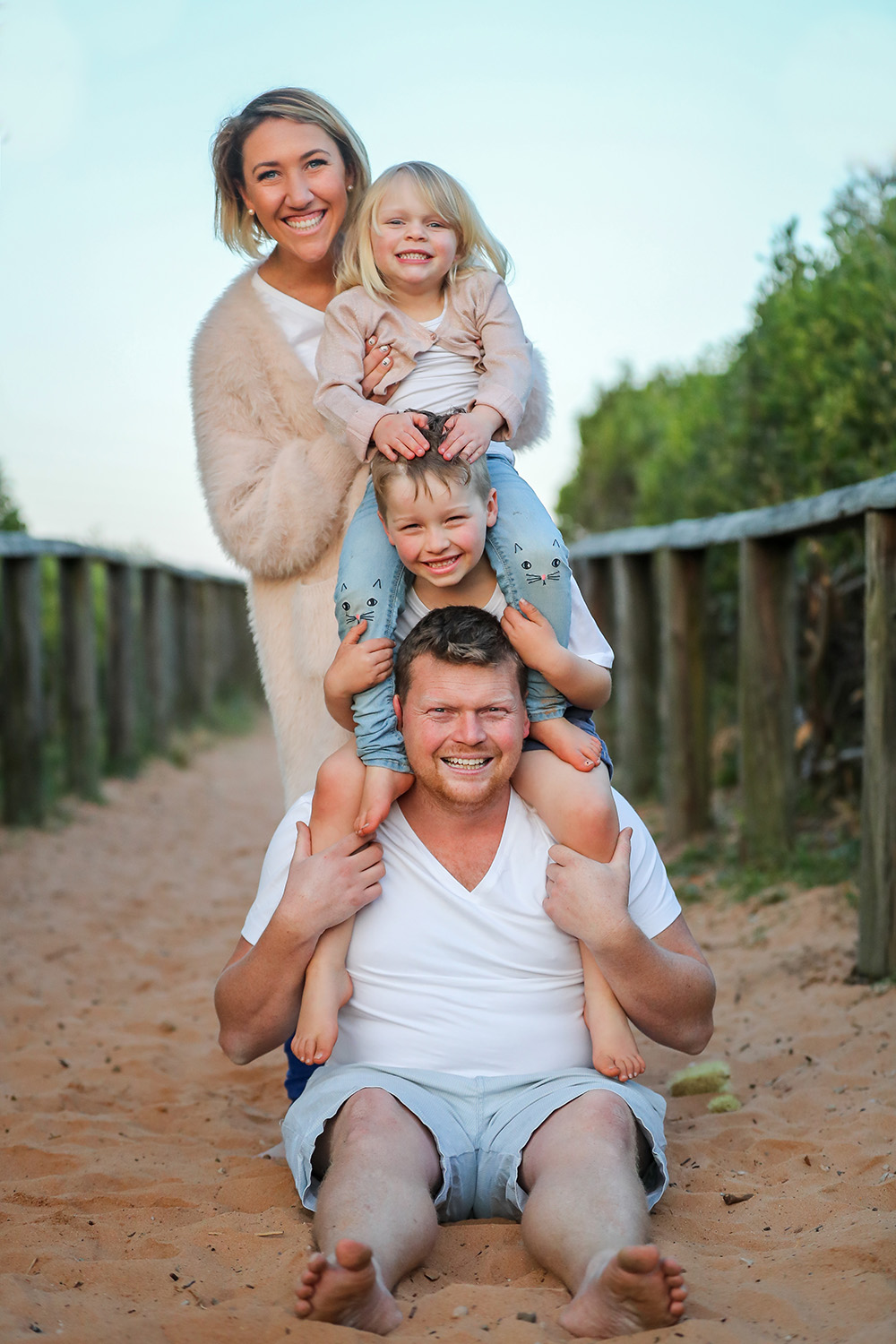
Holding attention
Now you’re ready to shoot, make sure you focus on the eyes and do what ever it takes to get your family’s attention. Before you get the kids’ attention, make sure Mum or Dad smile and look at the camera while you get the kids’ attention. I can’t tell you how many times I’ve taken an amazing photo of a family, but Mum’s looking down at the kids, nagging them to smile for the camera!
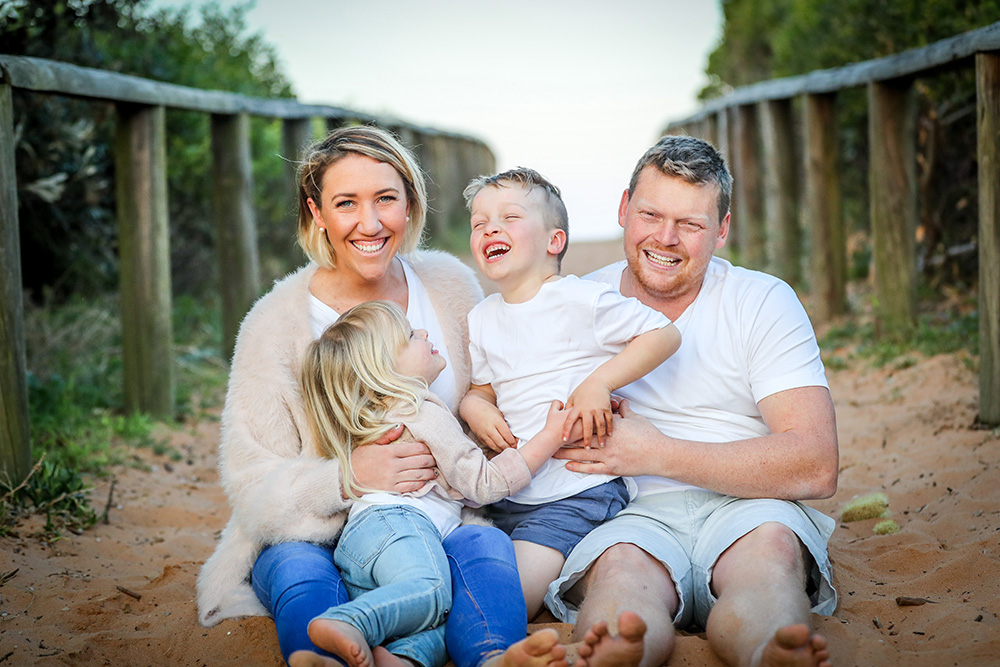
Don’t forget your pets
What would a family photo be without your furry friends included? Try to make sure that they’re around the same height as the people in the photo. For example you wouldn't want everybody standing if your dog’s lying down.
To get the best results, ask everyone to smile at the camera while you work on getting the pets’ attention. You can do this by whistling, holding their favourite toy, or bouncing a ball.
Family photography camera gear and settings:
Try to avoid shooting in auto mode; you’ll get much better results if you use semi-auto or manual modes. If you have a Canon EOS 200D, EOS 800D, or EOS 77D follow the guided display now featured in these models, which helps you choose the most suitable settings.
If you’re using a DSLR, choosing a telephoto lens — like the EF-S 18-135mm f/3.5-5.6 IS USM — will allow you to compress the field of view and help your subjects really stand out. On the other hand a prime lens — like the EF 50mm f/1.8 II — will allow you to capture incredible sharp and detailed images.
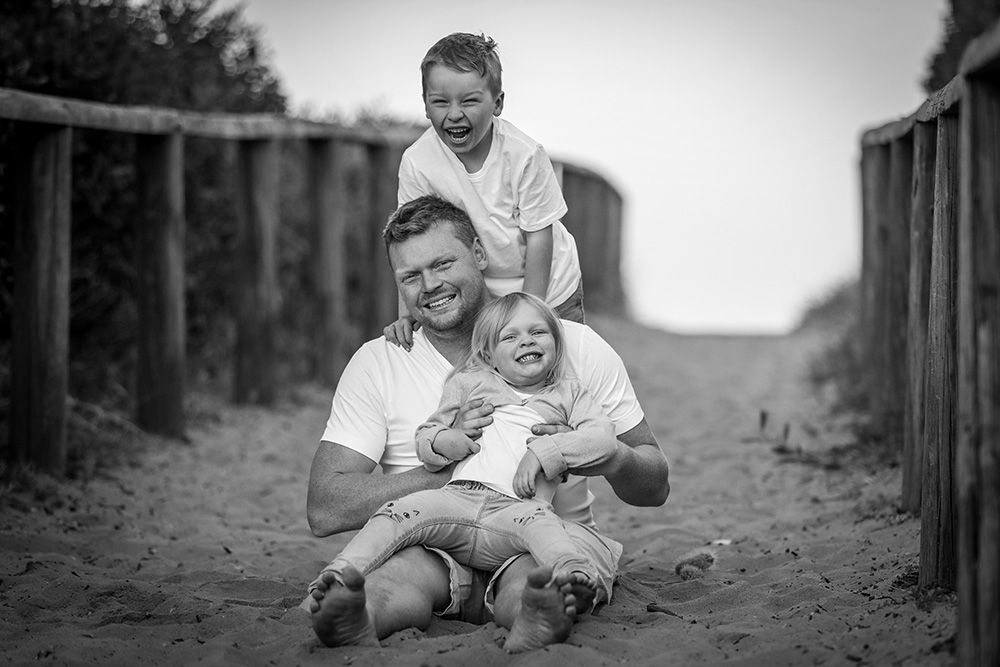
When I shoot portraits I’m generally in AV mode, and I lower the aperture down to achieve those beautifully soft blurry backgrounds. I start around f/4 and adjust from there.
For more spontaneous family photos — where kids and pets are on the move — you need a faster shutter speed to eliminate any blur. For this, shoot in TV mode and at least 1/200th of a second, with the lowest possible ISO. If you set the ISO to automatic mode, your camera will do this for you.
Before I start any family portrait shoot, I go through a mental checklist to make sure I’ve covered off everything beforehand. I’ve listed it below so you can print it out, and use it next time you’re photographing your family.
Family portrait photo shoot checklist:
• Everyone’s wearing neat clothing without branding, prints, bold colours or patterns
• The background is clear from distractions
• The light is soft and even
• My subjects are posed towards the best light with their shoes off and hair in place
• I’ve got baby wipes for any stray drool, snot or dirt
• My subjects have removed unnecessary accessories like Fitbits, jewellery and bright watches
• Their eyes, hands and feet are all visible

Images and text by Canon Photographer Jenn Cooper.

We invited three photographers to a portrait shoot where the gap between shooter and subject was removed, and explored what happens when portraits become truly personal.

Daniel Linnet reveals his passion for photography and the experience of mentoring Lisa Wilkinson

Six photographers. One subject. Discover how a photograph is shaped more by the person behind the camera than what's in front of it.